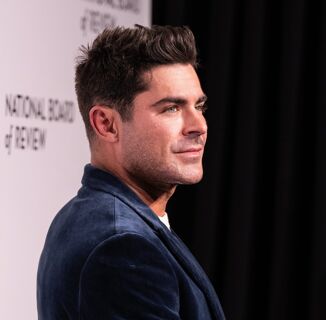The Supreme Court’s Monday decision in Masterpiece Cakeshop v. Colorado Civil Rights Commission has proven a legal Rorschach test for conservatives.
Although advocates say the nation’s highest bench “narrowly” ruled in favor of a Christian cakeshop owner who turned away a same-sex couple, the limitations of the decision haven’t stopped some right-wing groups from trumpeting the 7-2 decision as sweeping precedent to erode LGBTQ rights across the country.
Sounding off on the Court’s majority opinion, Justice Anthony Kennedy wrote that the Colorado Civil Rights Commission violated the “free exercise clause” of the U.S. Constitution in its ruling against Jack Phillips. The Lakewood, Color. baker argued that being forced to furnish a cake for David Mullins and Charlie Craig’s wedding, as he refused to do in 2012, would violate his religious beliefs.
The Colorado Civil Rights Commission ruled against Phillips’ claims of free speech violation five years ago, but Justice Kennedy argued that his faith wasn’t given proper consideration during the deliberations.
“The neutral and respectful consideration to which Phillips was entitled was compromised here,” he wrote. “The Civil Rights Commission’s treatment of his case has some elements of a clear and impermissible hostility toward the sincere religious beliefs that motivated his objection.”
Kennedy took particular issue with statements from the civil rights body which he perceived to reflective of bias against people of religious faith. During the hearings, one of the Colorado commissioners claimed that “freedom of religion has been used to justify all kinds of discrimination throughout history, whether it be slavery, whether it be the Holocaust.”
“[T]his sentiment is inappropriate for a commission charged with the solemn responsibility of fair and neutral enforcement of Colorado’s anti-discrimination law,” he said.
Kennedy was joined in his condemnation of the Colorado Civil Rights Commission by six justices: conservatives Samuel Alito, John Roberts, Neil Gorsuch, and Clarence Thomas, as well as liberals Elena Kagan and Stephen Breyer. The two dissenting members of the bench were Justices Sonia Sotomayor and Ruth Bader Ginsburg.
But while the SCOTUS argued that Colorado violated the government’s First Amendment duty to “make no law… prohibiting the free exercise thereof,” it stopped short of offering a broader ruling on the validity of “religious liberty” claims.
In fact, Kennedy directly stated that the larger issue of whether Christian businesses have the right to refuse service based on their beliefs would be decided in future cases.
“The outcome of cases like this in other circumstances must await further elaboration in the courts,” he wrote, “all in the context of recognizing that these disputes must be resolved with tolerance, without undue disrespect to sincere religious beliefs, and without subjecting gay persons to indignities when they seek goods and services in an open market.”
Kennedy, a moderate who has authored many of the court’s most pivotal pro-LGBTQ rulings, appeared to uphold the rights of same-sex couples to nondiscrimination following his 2015 majority opinion in Obergefell v. Hodges, which extended marriage equality to all 50 states.
“Our society has come to the recognition that gay persons and gay couples cannot be treated as social outcasts or as inferior in dignity and worth,” he wrote.
Kennedy added that states like Colorado have the authority “to protect the rights and dignity of gay persons who are, or wish to be, married but who face discrimination when they seek goods or services.”
The American Civil Liberties Union, which argued on behalf of Mullins and Craig before the Supreme Court, noted that Kennedy’s opinion supported laws singling out LGBTQ people as a protected class. In a statement, the legal advocacy group noted that SCOTUS “did not accept arguments that would have turned back the clock on equality by making our basic civil rights protections unenforceable.”
“The court reversed the Masterpiece Cakeshop decision based on concerns unique to the case but reaffirmed its longstanding rule that states can prevent the harms of discrimination in the marketplace, including against LGBTQ people,” said Deputy Legal Director Louise Melling.
But even despite the fact that this week’s ruling was hardly the license to discriminate that far-right conservatives might have liked, that didn’t stop some religious extremists from viewing it as such.
Liberty Counsel, the anti-LGBTQ hate group which defended Rowan County, KY clerk Kim Davis in court after she was jailed five days for denying marriage licenses to same-sex couples, claimed in a Monday press release that the Masterpiece decision “will have a wide impact regarding the clash between free speech and the LGBTQ agenda.”
Particularly, the far right legal organization took aim at “laws that add ‘sexual orientation’ and ‘gender identity.’”
“Twenty-one states have ‘public accommodations’ laws that include one or both phrases,” Liberty Counsel said in a statement. “They include California and six other states in the West, Illinois and three other states in the upper Midwest, and 10 states on the East Coast from Maryland to Maine. No state in the South or on the Great Plains has such a law.”
The laws that Kim Davis’ lawyers singled out protect LGBTQ people in areas such as housing, employment, and healthcare and are widely supported by the American public. Seven in 10 people believe queer and trans individuals should be shielded from undue bias as they go about their daily lives.
After the Masterpiece decision came down, LGBTQ advocates immediately predicted the ruling would be falsely exploited to erode legal protections for queer and transgender folks in the states where they exist.
GLAAD President and CEO Sarah Kate Ellis said it “leaves the door wide open for religious exemptions to be used against LGBTQ people.”
“Today’s decision emboldens the anti-LGBTQ Alliance Defending Freedom and the Trump Administration in their persistent push to legalize discrimination against LGBTQ people under the misnomer of religious freedom,” Ellis said in a statement. “LGBTQ people will continuously be vulnerable until the liberty and justice for all tenants of the Constitution apply to all Americans, including LGBTQ people.”
Annise Parker, the president and CEO of LGBTQ Victory Institute, further warned that anti-equality forces would “use it to try and open the floodgates.”
“Homophobic forces will purposefully over-interpret the ruling and challenge existing non-discrimination laws by refusing service to LGBTQ people in even more situations, denying them dinner at a restaurant, lodging at a hotel, or renting an apartment,” said Parker.
Perhaps no one is better qualified to make that assessment than Parker. During her tenure as mayor of Houston, conservative groups successfully fought to overturn the Houston Equal Rights Ordinance (HERO), which extended nondiscrimination protections on the basis of more than a dozen protected characteristics—including pregnancy and veteran status.
After the right-wing Campaign for Houston falsely claimed that HERO permitted transgender people to violate women and children in public bathrooms, the ordinance was voted down by a margin of 61 percent to 39 percent.
When HERO was repealed in November 2015, Family Research Council President Tony Perkins claimed that “religious freedom… won the day.” But Perkins, a close advisor to Donald Trump who famously lobbied in favor of the president’s embattled trans military ban, said that “much more work remains to be done to safeguard these freedoms across the nation.”
Unsurprisingly, Perkins has championed the Masterpiece ruling as a “victory for… our nation’s long cherished freedom of following one’s deeply held beliefs without fear of government punishment.” In a statement, he claimed it illustrated a “consensus” on issues of “religious freedom.”
“The Supreme Court made clear that the government has no authority to discriminate against Jack Phillips because of his religious beliefs,” Perkins claimed.
“Misguided government officials singled out Jack’s religious beliefs for discriminatory treatment, but that isn’t freedom, it’s tyranny,” he continued. “It’s simply un-American to force people like Jack to compromise their religious beliefs just because they are disfavored by those who have used government entities like this Colorado government commission.”
But in the face of right-wing opposition to nondiscrimination laws, advocates vowed to continue to advance protections for LGBTQ at the local, state, and national levels.
“The message to take from today’s ruling is that nondiscrimination laws remain important and powerful tools to fight stigma and inequality,” said Masen Davis, the CEO of Freedom for All Americans, in a statement. “We now need to double down and work harder and faster than ever before to advance comprehensive nondiscrimination protections at the state and federal levels.”
“Passing laws at the state level and in Congress is the best way we can ensure all LGBTQ Americans are thoroughly protected from discrimination, regardless of the state they call home,” Davis added.
Contrary to Liberty Counsel’s tabulations, 20 states (and D.C.) currently have nondiscrimination regulations in place on the basis of both sexual orientation and gender identity, including California, Maine, Minnesota, Nevada, Utah, and Washington. Wisconsin and New Hampshire only offer anti-bias protections in cases where the victim is gay, lesbian, or bisexual—but not transgender.
Although the New Hampshire legislature passed a historic trans rights bill in May, the nondiscrimination legislation has yet to be signed into law by Gov. Chris Sununu, who has pledged to approve it.
Colorado groups affirmed that the Masterpiece verdict in no way violates its own nondiscrimination laws.
“While we are disappointed the Court ruled in favor of Masterpiece Cakeshop and their discrimination against Dave Mullins and Charlie Craig, the fact remains that Colorado has a civil rights division and anti-discrimination laws that equally protect the fundamental rights of all Coloradans,” said One Colorado Executive Director Daniel Ramos in a statement.
“Coloradans across our state—including LGBTQ Coloradans and their families—can take heart from today’s decision that no matter who you are, who you love, or what you believe, you will still be protected in our state from discrimination,” he added.
Help make sure LGBTQ+ stories are being told...
We can't rely on mainstream media to tell our stories. That's why we don't lock our articles behind a paywall. Will you support our mission with a contribution today?
Cancel anytime · Proudly LGBTQ+ owned and operated
Read More in Impact
The Latest on INTO
Subscribe to get a twice-weekly dose of queer news, updates, and insights from the INTO team.
in Your Inbox














